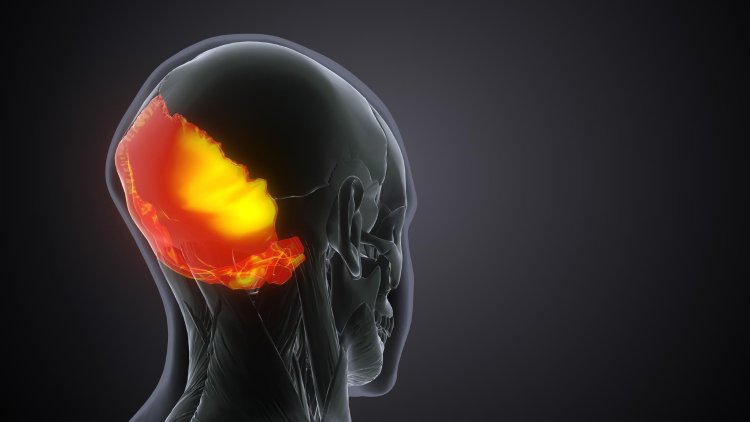The Menace of Meningitis: A Comprehensive Guide
Meningitis is a serious medical condition characterized by inflammation of the meninges, the protective membranes surrounding the brain and spinal cord. It can be caused by a variety of infectious agents, including bacteria, viruses, fungi, and, less commonly, parasites and other microorganisms. Meningitis can lead to severe complications and even death if not promptly diagnosed and treated. In this comprehensive guide, we will explore the various aspects of meningitis, including its causes, symptoms, diagnosis, treatment, and prevention strategies.

Causes of Meningitis
Meningitis can be classified into several types based on its etiology, with bacterial, viral, and fungal meningitis being the most common forms. Bacterial meningitis is often caused by pathogens such as Neisseria meningitidis, Streptococcus pneumoniae, Haemophilus influenzae type b (Hib), Group B Streptococcus (GBS), and Listeria monocytogenes. Viral meningitis, on the other hand, is primarily caused by enteroviruses, herpesviruses, and influenza viruses. Fungal meningitis is less common and is usually associated with fungal infections such as Cryptococcus neoformans and Candida species. Additionally, certain non-infectious conditions such as autoimmune disorders, drug reactions, and malignancies can also lead to meningitis.
Symptoms of Meningitis
The symptoms of meningitis can vary depending on the underlying cause and the age of the affected individual. Common symptoms of meningitis include fever, headache, neck stiffness, photophobia (sensitivity to light), altered mental status, nausea, vomiting, and rash. In infants, symptoms may include irritability, poor feeding, lethargy, and bulging fontanelle (soft spot on the baby's head). It is important to note that the onset and progression of symptoms can be rapid, particularly in cases of bacterial meningitis, necessitating prompt medical attention.
Diagnosis of Meningitis
Diagnosing meningitis requires a thorough evaluation by a healthcare professional, often including a combination of medical history assessment, physical examination, laboratory tests, and imaging studies. A lumbar puncture, also known as a spinal tap, is typically performed to collect cerebrospinal fluid (CSF) for analysis, which can help identify the presence of infectious agents and assess markers of inflammation. Imaging studies such as computed tomography (CT) or magnetic resonance imaging (MRI) may be used to evaluate for complications of meningitis, such as cerebral edema (brain swelling) or hydrocephalus (accumulation of fluid in the brain).
Treatment of Meningitis
The treatment of meningitis depends on the underlying cause and the severity of the infection. Bacterial meningitis is a medical emergency and requires prompt initiation of antibiotics to eradicate the causative bacteria. Empirical antibiotic therapy is often initiated while awaiting the results of CSF cultures and sensitivity testing. In cases of viral meningitis, supportive care such as rest, hydration, and pain management may be recommended, as antiviral medications are generally not effective against most viral pathogens. Fungal meningitis typically requires prolonged treatment with antifungal agents, often administered intravenously.
Prevention of Meningitis
Preventing meningitis is an important public health priority and can be achieved through vaccination, good hygiene practices, and awareness of risk factors. Vaccination against bacterial pathogens such as Neisseria meningitidis, Streptococcus pneumoniae, and Haemophilus influenzae type b has significantly reduced the incidence of bacterial meningitis in many parts of the world. Vaccination against viral pathogens such as measles, mumps, and varicella can also help prevent viral meningitis. Additionally, practicing good hand hygiene, avoiding close contact with individuals who are sick, and covering coughs and sneezes can help reduce the spread of infectious agents that can cause meningitis.
In conclusion, Meningitis is a potentially life-threatening condition that requires prompt recognition and treatment. By understanding the causes, symptoms, diagnosis, treatment, and prevention strategies for meningitis, individuals can take steps to protect themselves and their communities from this serious infection. Early medical intervention and vaccination efforts play a critical role in reducing the burden of meningitis and its associated complications.
#Meningitis #Causes #Symptoms #Diagnosis #Treatment #Prevention #HealthAwareness #PublicHealth #Vaccination #HygienePractices #MedicalIntervention #InfectiousDiseases #AwarenessCampaigns
Disclaimer:
The information provided in this article is for educational purposes only and should not be considered medical advice. If you have any health concerns or are experiencing symptoms, it is important to consult with a healthcare professional, such as a doctor or clinic, for proper diagnosis and treatment. Always seek the advice of your doctor or other qualified health provider with any questions you may have regarding a medical condition. Do not disregard professional medical advice or delay in seeking it because of something you have read in this article.
What's Your Reaction?





















